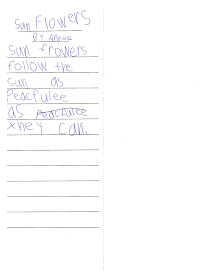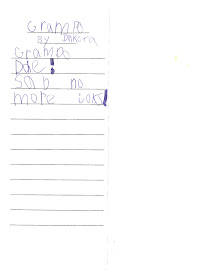(Click on the above graphic to read previous Saturday Sayings.)
I've been looking forward to sharing this quote for a long time. Hands down it's a favorite of mine. I've even committed it to memory. (Yeah, not impressive. You'll see why.)
The way I feel about this quote is the way I feel about certain worship songs we sing at church. Man, I wish I'd written that. It's so simple and powerful all at the same time. Regardless of its simplicity and power, it's not always the way we run the show though, huh?
You do it.
or
I do it. You do it.
or
I do it. We do it. You do it.
Anyone besides me guilty of abbreviating the process? I suppose we get in a rush. The time crunch is forever hanging over our heads. Modeling and then sharing and sharing and sharing the learning process before completely handing it over takes time and planning as well. If you're like me though, you can easily tell when all the we-do-its are accounted for. It's kind of obvious. The kids understand, and the product we were hoping for meets our high expectations. The equation works. Thanks Regie for reminding us how much modeling and sharing the process make the difference in our teaching!
Have you been reading these other three Saturday Sayings? If you haven't, you're seriously missing out. I have been thoroughly blessed and inspired by these gals. Do me a favor if you will. Check them out today. While you're there, let them know how they've inspired you too. Thank you!
Have you been reading these other three Saturday Sayings? If you haven't, you're seriously missing out. I have been thoroughly blessed and inspired by these gals. Do me a favor if you will. Check them out today. While you're there, let them know how they've inspired you too. Thank you!
Lori at Conversations in Literacy
Julie at Lighting a Fire in Third Grade
Sandi at Literacy Minute







































